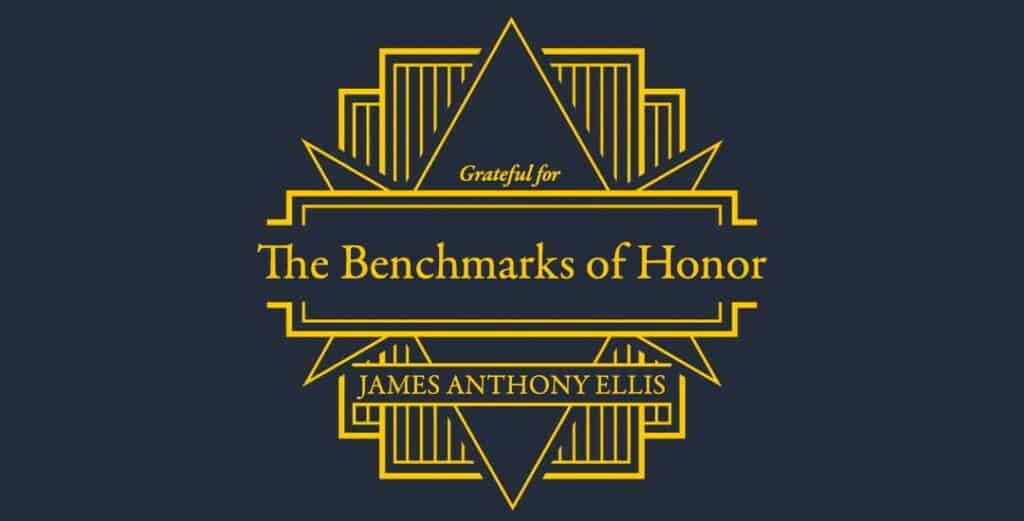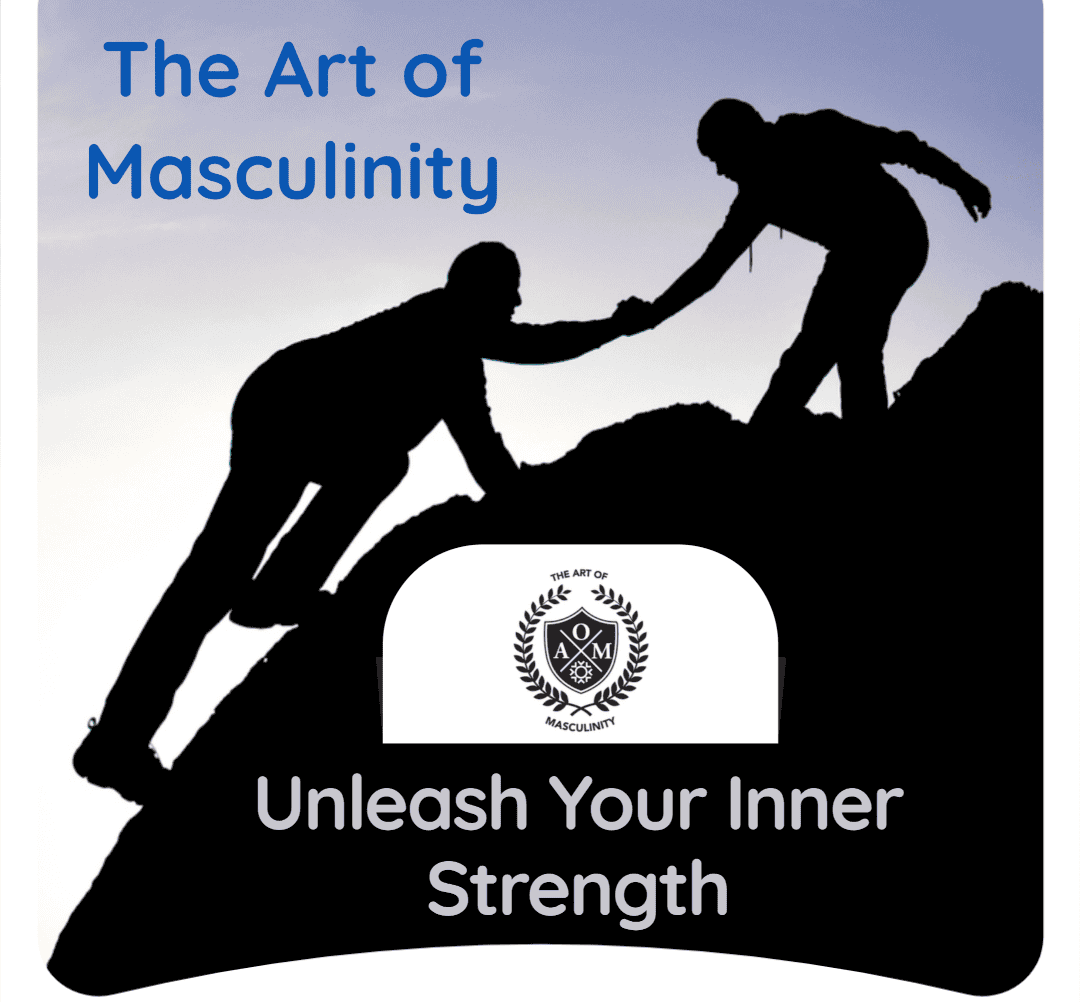James Anthony Ellis
Editor, Legacy Magazine
Oh man, I didn’t know there could be a world like this. I guess I was hoping it existed, but I wasn’t sure.
And now – after 25 years participating in this grand experiment called a “men’s team” – I am just so thankful for Mentor Discover Inspire’s benchmarks of honor.
Imagine a world where men hold high and own personally an honor system, whereby they live by a code and an agreed-upon set of standards, whereby a man who breaks his word or falls out of honor – like everyone will – would have a way back.
Imagine. This is what we have, and it is gold.
The Mentor Discover Inspire (MDI) benchmarks are simple and few, and include:
- Mission Statement – To cause greatness by mentoring men to live with excellence and as mature masculine leaders create successful families, careers and communities.
- Vision Statement – A world where Honor, Selflessness, Commitment, Integrity, Training, and Learning give men the wisdom and courage to serve all men, women, and children for the betterment of humanity.
- The Code of Honor – A set of 15 tenets devised at a West Coast Regionals in 1989 so men had a code to live by. Listed at the end of this article.
- The Mature Masculine Qualities – A list of 20 qualities belonging to the man who has reached a higher way of being. Listed at the end of this article.
- Division and Team Standards – See your men’s team and men’s division.
Without a benchmark, men would not have anything with which to measure their success. Trophies and medals are great for sporting events. Money and promotions are great for the business world. A happy and long-lasting family life is a great measure for success within relationships.
And for the day-to-day, more subtle measures? How would we observe these?
How about standards, missions, codes and qualities?
For example, being on time can serve you in so many areas of your life. Being late to events and meetings can detract from your life, even leading to being fired from a job if the behavior continues. So what do most MDI men’s team have as a standard? “Be on time.” Yes. Not only does a benchmark give men something to clearly measure honor and integrity, but the continual breaking of such a standard can be an indication that there is something deeper going on with that man. Here, a men’s team can observe behaviors and inspect the man to see if he has an underlying need that requires attention.
Besides providing the invaluable benchmarks and measurable bars to reach, our system of honor carries something that no other organization holds as dear. Nicknamed with the jargon of “clean-ups,” this is the practice of doing some form of action to bring a man back into honor if he has broken a word, commitment or standard. If a man is indeed his “word,” then what happens if that word is broken? Is it left broken like a bunch of glass shards on the floor? Or can the man do something symbolically to restore his honor and “clean up” any mess that has been made?
The key in these situations is to make the distinction between a “punishment” and a “consequence,” one of the most vital shifts a man can make in his life and in his mind. An immature, passive boy is “punished” by another for being “bad” or doing something “wrong.” A mature, proactive man offers to make up for breaking his word by giving back to another man or a circle that has been impacted.
Even though this practice gets muddied by the emotional responses by those needing to clean up – perhaps out of guilt, shame or a past full of punishments – the act of restoring honor is one of the most powerful processes this organization practices.
The Mature Masculine Quality that addresses this most directly is number 8:
I repair and resolve any of my broken words or commitments with those I have impacted, without having to be prompted to do so.
There are so many key elements within this one line, that it would be wise to unpack it.
Within it, we see a male shift from a shameful, hiding, little boy to a mature man ready to step up into his power, even amidst any fall-outs caused by him.
The man is proactive and not reactive in his endeavor to restore himself and restore the relationship that may be compromised by his breech. The act of cleaning up comes from the man’s own volition, not because he was “caught” by some outside force – like a parent, teacher or police officer. The man of honor doesn’t need to be prompted to restore his own honor; he knows it needs restoring, and he does what he must to bring balance back to the situation, reinstating a strong and unbroken circle.
The man of honor doesn’t avoid those he has impacted and then perform some consequence – such as 25 pushups – with his men’s team or on his own. He knows who has been impacted by any misstep and then gives back to those, or finds out what may be needed for complete restoration. A common phrase once a man has broken his commitment with another: “What do you need from me?” What an eloquent, grand and trust-filled phrase – virtually extinct in our present society. With such an approach, the man out of honor takes care of those who were impacted. He also takes care of the relationship that may subtly suffer without such an offering.
The man of honor doesn’t conflate his honor with his emotions. The man may have all the reasons in the world he broke his word, and he may have a ton of emotions about some part of his life that would help create the misstep. However, he doesn’t hide behind his feelings, claiming his pain special enough to put off or avoid giving back all together. There is time for both:
- Performing some consequence to return to honor.
- Expressing and processing his emotions if need be.
Something not found in the Mature Masculine quality, but something that could make it even more powerful, and therefore more uplifting for the men is the idea of timeliness. What if the man who breaks his word does not wait until a team meeting or some other gathering to restore that word? What if he cleaned up the broken word immediately? How powerful would that be? First off, the broken word would not get lost in the busy mind that could easily forget it forever. Secondly, that man would be walking forward in his life as a honorable man, and not a man in waiting for a time to make things right again.
Would we rather be men walking forward in our lives out of integrity or in integrity? Which one assures us a better chance at continued success?
Imagine a world – men living according to a code of honor they own fully, one in which includes the opportunity to give back to anyone they have negatively impacted – faithfully, responsibly, calmly and swiftly.
For these considerations and conversations, for these benchmarks and for the priceless honor system that empowers each man to own his honor and restore it whenever needed, I am eternally grateful.
Thank you MDI. And thank you men.
The Code of Honor
- Commitment Before Ego
- Honor the Truth
- Respect Confidentiality
- Keep Your Word
- Be a Three-Dimensional Man
- Be Prepared
- Defend Humanity
- Always Be Faithful to The Men
- Defend the Code
- Never Engage in Battles with Weaker Opponents
- Fight Only Honorable Battles
- Earn and Honor Rank
- Be Humble
- Embrace All Men
- Be an Example to Children
The Mature Masculine Qualities
- I am a self-sufficient man.
- I hold a “no problem” attitude.
- I am clear on my terms, personal standards, commitments, and boundaries.
- I keep my word – holding integrity high.
- I am responsible and accountable, taking ownership of my life, with no need for excuses.
- I call men out and hold them accountable to their word and to their best.
- I am open to feedback / criticism / coaching; I do not complain, pout or get defensive when challenged.
- I repair and resolve any of my broken words or commitments with those I have impacted, without having to be prompted to do so.
- I do not carry grudges or “lists”– and I clear with men swiftly and directly.
- I am confident.
- I give my best even when I can get by with less.
- I am decisive, taking action.
- I am impeccable, precise, and thorough.
- I am humble.
- I ask for help.
- I show and express care.
- I broaden my context, serving others generously – expanding from “what I can get” to include “what I can contribute.”
- I am conscious of how I affect the people around me.
- I lift other men up and support them to win.
- I am respected by men, a leader who is followed.

